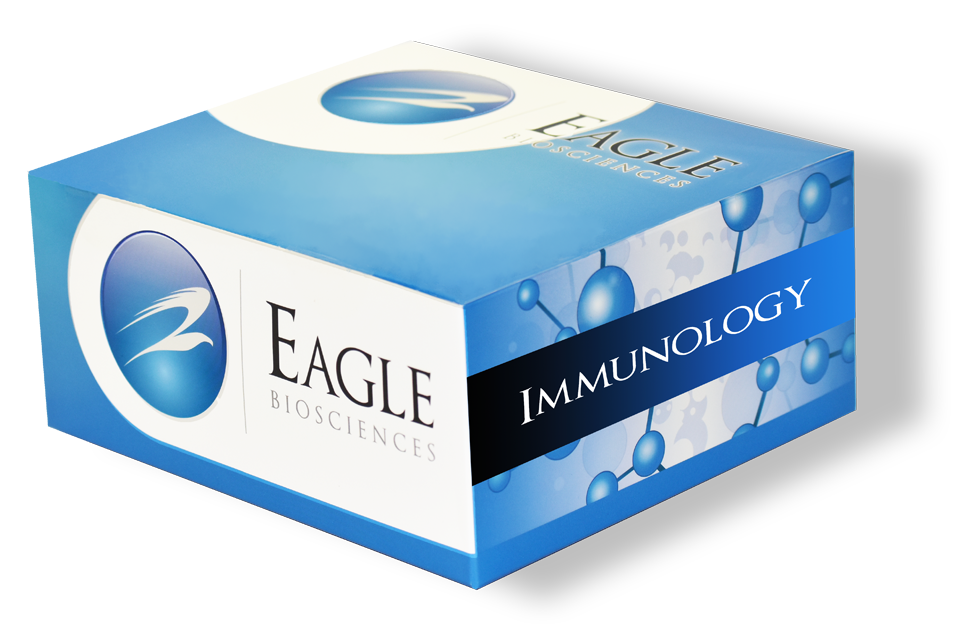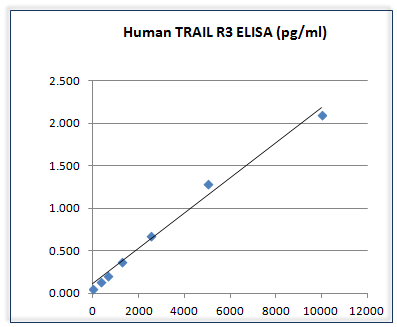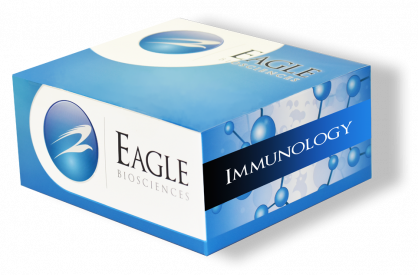Human TRAIL R3 ELISA Assay
The Human TRAIL R3 ELISA Assay is For Research Use Only
Size: 1×96 wells
Sensitivity: 6 pg/ml
Dynamic Range: 312.5 pg/ml – 10000 pg/ml
Incubation Time: 3h 40 min
Sample Type: Serum, Cell lysates
Sample Size: 100 µl
Alternative Names: CD263, DcR1, LIT, TRID, Tumor necrosis factor-related apoptosis-inducing ligand receptor 3
Assay Background
Human Trail R3, also called DcR1, CD263, LIT, or TRID is a glycosyl-phosphatidylinositol-linked membrane protein which binds TRAIL with high affinity. In the Trail receptor family, Trail R3 (DcR1) but also Trail R4 (DcR2) antagonize TRAIL-induced apoptosis whereas Trail R1 (DR4) and Trail R2 (DR5) transduce an apoptosis signal. Trail R3 has extracellular TRAIL-binding cystein-rich domain but lacks intracellular signalling domain. Expression of Trail R3 has been shown to protect cells bearing Trail R1 and/or Trail R2 from Trail-induced apoptosis. Many tumor cell lines don’t express the decoy receptors and are therefore sensitive to TRAIL if they express Trail R1 and/or Trail R2.
Storage Instructions
Store the Human TRAIL R3/DcR1 ELISA reagents between 2 and 8°C. Immediately after use remaining reagents should be returned to cold storage (2-8°C). Expiry of the kit and reagents is stated on box front labels. The expiry of the Human TRAIL R3/DcR1 ELISA Assay kit components can only be guaranteed if the components are stored properly, and if, in case of repeated use of one component, the reagent is not contaminated by the first handling.
Related Products
Human TRAIL R1 ELISA Assay
Human TRAIL R2 ELISA Assay
Human TRAIL/R4/DcR2 ELISA Assay Kit



